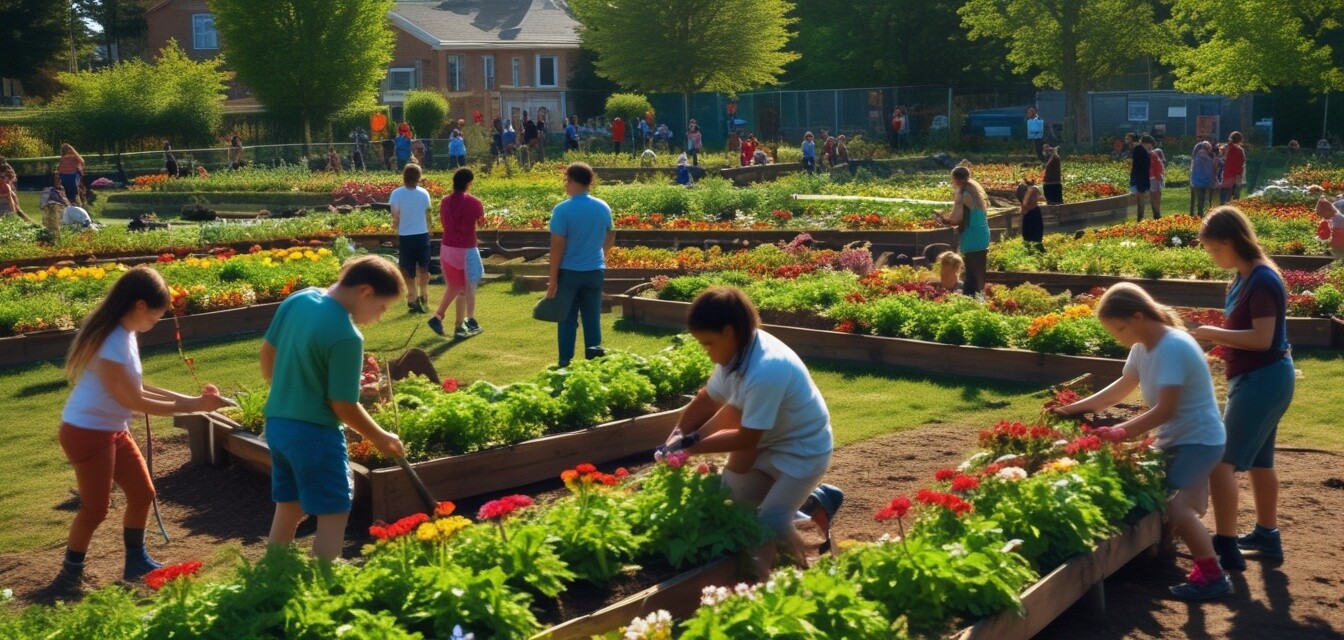
Exploring the Benefits of Gardening in Schools
Key Takeaways
- Gardening programs enhance educational experiences for students.
- School gardens encourage healthier eating habits among students.
- Participating in gardening fosters teamwork and collaboration.
- Gardening provides hands-on learning opportunities.
- These programs contribute to emotional wellbeing and reduce stress.
Gardening in schools has gained significant traction in recent years as educators recognize the profound benefits it offers. This article will explore the various ways that school gardening programs are positively impacting students, enhancing their education, and supporting their overall wellbeing.
The educational benefits of gardening
Integrating gardening into the school curriculum provides a multi-faceted educational platform that enhances learning across various subjects. Here are a few of the key educational benefits:
- Hands-on learning: Students engage actively in the learning process, transforming abstract concepts into tangible experiences.
- STEM education: Gardening promotes Science, Technology, Engineering, and Math skills through plant biology, environmental science, and even technology in irrigation.
- Environmental awareness: Students learn the importance of biodiversity, ecosystems, and sustainable practices.
- Nutrition education: Gardening fosters an understanding of where food comes from, encouraging students to make informed dietary choices.
Improving nutrition and health
One of the most significant advantages of gardening in schools is its positive influence on student nutrition:
| Benefit | Description |
|---|---|
| Increased vegetable consumption | Students who participate in gardening are more likely to enjoy eating vegetables they have grown themselves. |
| Understanding nutrition | Gardening teaches students about the nutritional value of foods, leading to healthier eating habits. |
| Physical activity | Gardening tasks involve physical activity that benefits students' overall health and well-being. |
Social and emotional benefits
Gardening activities in schools also provide a social outlet and contribute to emotional wellbeing:
- Teamwork: Planting, caring for, and harvesting the garden fosters collaboration and teamwork skills.
- Confidence building: Successfully growing plants can enhance self-esteem and confidence in students.
- Stress relief: Spending time in nature and engaging in gardening can help reduce anxiety and promote mental health.
Incorporating gardening into the curriculum
For schools looking to implement a gardening program, the integration can be seamless:
- Start small with containers or raised beds.
- Involve students in planning what to grow.
- Integrate lessons on plant biology and sustainability.
- Use the garden for experiential learning across subjects.
Case studies of successful school gardens
Several institutions have successfully integrated gardening into their curriculum with positive outcomes:
| School | Location | Outcome |
|---|---|---|
| Greenfield School | Ohio | Increased vegetable intake among students by 40%. |
| Pine Crest Academy | California | Enhanced student engagement and collaboration in lessons. |
| River Valley High | New York | Decrease in behavioral issues and improved focus in classrooms. |
"Gardening is a way to teach students responsibility while allowing them to enjoy the benefits of their hard work." - Educator at River Valley High
Conclusion
As we delve deeper into the educational landscape, it is evident that gardening in schools presents tremendous potential. Not only does it foster academic skills and promote healthier eating habits, but it also nurtures emotional wellbeing and social skills in students. To learn more about sustainable practices that can be incorporated into school programs, visit our News and Trends section or explore our Eco-Friendly Fertilizers for insights on sustainable gardening techniques.
Tips for starting a school garden
- Start with easy-to-grow plants.
- Involve parents and volunteers for support.
- Plan garden-related educational activities.
- Consider seasonal plants to keep students engaged year-round.